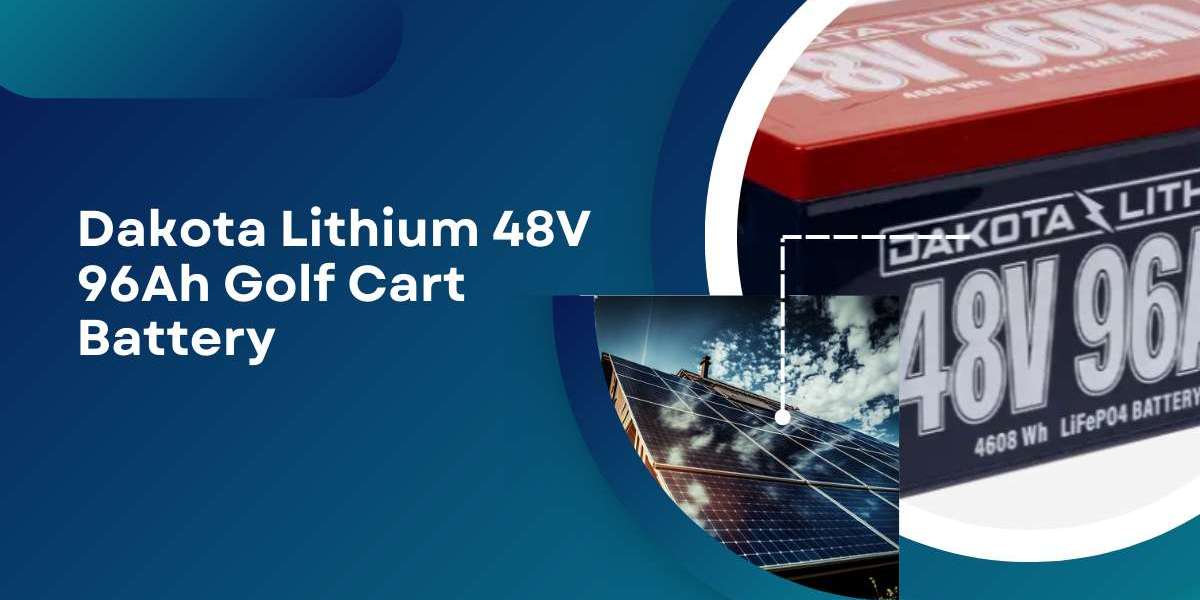Cart batteries are the unsung heroes that ensure seamless operation when powering your golf cart, utility vehicle, or personal mobility cart. These energy-packed components are designed to offer reliability, durability, and long-lasting power. Whether upgrading an old battery or buying a new one, understanding the essentials of cart batteries can help you make an informed decision.
In this guide, we'll explore everything you need to know about cart batteries, from their types and maintenance tips to how they compare to other power sources. By the end, you'll be well-equipped to pick the correct battery for your cart and keep it running like new.
What Are Cart Batteries?
Cart batteries are specialized batteries built to power carts, including golf carts, mobility scooters, and utility vehicles. Unlike standard car batteries, they are designed for deep-cycle applications, which means they deliver steady power over a prolonged period instead of short bursts of energy. This makes them ideal for electric vehicles and carts that require consistent performance.
Types of Cart Batteries
When shopping for cart batteries, knowing the options is essential. The three primary types include:
Flooded Lead-Acid Batteries
- Most common and affordable.
- Regular maintenance is required, such as refilling water.
- Offer reliable performance but need careful handling.
AGM (Absorbent Glass Mat) Batteries
- Spill-proof and maintenance-free.
- Known for durability and vibration resistance.
- Slightly more expensive but worth the investment for hassle-free use.
Lithium-Ion Batteries
- Lightweight and long-lasting.
- Charge faster and have a higher energy density.
- It comes with a higher upfront cost but saves money in the long run.
Why Are Lithium-Ion Cart Batteries Gaining Popularity?
Lithium-ion technology has revolutionized the battery industry. In recent years, it has become a popular choice for cart batteries due to its numerous advantages:
- Lifespan: Can last up to 10 years with proper care.
- Weight: Nearly half the weight of traditional lead-acid batteries.
- Charging Speed: Charges up to 80% faster.
- Eco-Friendly: Lower carbon footprint compared to lead-acid batteries.
According to a BloombergNEF report, the global demand for lithium-ion batteries is expected to grow by 35% annually, making them a future-proof choice for carts.
How to Choose the Best Cart Batteries?
Selecting the right cart batteries depends on several factors:
- Battery Capacity
- Measured in ampere-hours (Ah). Higher capacity means longer runtime.
- For golf carts, 150Ah-250Ah is standard.
- Voltage
- Ensure compatibility with your cart's voltage requirements (typically 36V or 48V).
- Durability
- Opt for shock-resistant and weatherproof batteries for outdoor use.
- Warranty
- Look for a warranty of at least 3 years to ensure peace of mind.
Top Brands for Cart Batteries
Some of the leading manufacturers of cart batteries include:
- Trojan Batteries
- Known for unmatched reliability and performance.
- A trusted name in golf cart battery manufacturing.
- US Battery
- Offers high-capacity, long-lasting batteries.
- Excellent customer service and warranties.
- Samsung SDI (Lithium-Ion)
- A leader in lithium-ion technology with an emphasis on sustainability.
Maintaining Cart Batteries for Optimal Performance
Regular maintenance is key to getting the most out of your cart batteries. Follow these tips:
- Charge After Every Use: Don't let the battery completely discharge.
- Clean Terminals: Remove corrosion and dirt to ensure proper connectivity.
- Check Water Levels (For Lead-Acid Batteries): Refill with distilled water as needed.
- Store Properly: Keep in a cool, dry place during off-seasons.
Why Regular Charging Matters for Cart Batteries
Did you know that failing to charge your cart battery regularly can reduce its lifespan by 30%? Consistent charging ensures the battery retains its capacity and avoids deep discharges that can cause irreversible damage.
Signs You Need to Replace Your Cart Batteries
- Reduced runtime or power output.
- Swollen or leaking battery casing.
- Difficulty in charging or holding a charge.
- Corroded terminals that cannot be cleaned.
Expert Opinion on Cart Batteries
James Henderson, an energy systems engineer, states:
"Investing in high-quality cart batteries is critical for long-term performance. Look for brands with proven track records and focus on regular maintenance to maximize your investment."
FAQs
What is the average lifespan of cart batteries?
Most cart batteries last 3-5 years, while lithium-ion options can last up to 10 years.
Are lithium-ion batteries worth the extra cost?
Yes, they offer better performance, faster charging, and longer life, saving money over time.
How do I choose the correct voltage for my cart?
Check your cart's manual. Most carts require 36V or 48V.
Can I use car batteries for my cart?
Car batteries are designed for short bursts of energy, not continuous discharge.
What happens if I overcharge my cart battery?
Overcharging can cause overheating, swelling, and reduced lifespan.
How do I recycle old cart batteries?
Most local recycling centers and battery retailers accept used batteries for proper disposal.
Conclusion
Proper cart batteries can significantly improve your cart's performance and reliability. Whether you prefer the affordability of lead-acid batteries or the advanced features of lithium-ion batteries, investing in a quality battery ensures smooth rides and long-term savings. Your cart battery will serve you well for years with proper care and maintenance.








